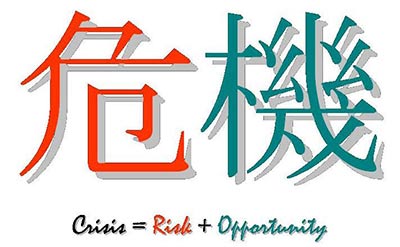 The year 2020 ushered in a crisis of global magnitude no living person has ever experienced. People from all over the world have watched in disbelief and horror as an invisible and lethal enemy moved with exponential speed from a village in China into more than 180 countries in the world, bringing death and destruction to life as we have known it.
The year 2020 ushered in a crisis of global magnitude no living person has ever experienced. People from all over the world have watched in disbelief and horror as an invisible and lethal enemy moved with exponential speed from a village in China into more than 180 countries in the world, bringing death and destruction to life as we have known it.
The world is reeling from the impact of COVID-19 on individuals and families, and entire societies and economies have been brought to a sudden and screeching halt in the effort to curb the spread of death and save human lives. The uncertainties of life have exploded as mankind is both shut down and on high alert while leaders in government and medicine seek to delicately balance saving lives with maintaining solvent and functioning societies.
In the Chinese language, the word “crisis” is made up by two symbols that mean “danger” and “opportunity.” In a crisis, the human brain’s limbic system kicks into high gear. Our bodies are flooded with stress hormones, such as adrenaline and cortisol, that enable us to survive in the face of sudden and unexpected danger, often known as “fight, flight or freeze” reactions.
We are not created to sustain these levels of overdrive for long periods. When stress and trauma become chronic, or we begin to ruminate and worry, we can get stuck in thoughts and behavior that lead to anxiety and depression, which can also result in serious mental illness.
Scientists are now predicting that there is likely to be a second pandemic on the horizon as the world’s “limbic system” has been both corporately and individually stressed from the ongoing battle against the disease and ramifications on all aspects of the normalcy of our lives.
To be sure, this pandemic will end. The world has weathered pandemics over the millennia. Some aspects of life will return to the old ways, but we must accept that there will be a “new normal” that emerges. Just like the events of 9/11 spawned TSA screenings at airports that have become normal to us in a matter of years, life as we know it is undergoing a “Kairos” moment in time, where a qualitative shift takes place.
 When we focus only on the danger and negative elements of a situation (such as with rumination and worry), we stay in a heightened state of alarm that weakens us in body, soul, and spirit.
When we focus only on the danger and negative elements of a situation (such as with rumination and worry), we stay in a heightened state of alarm that weakens us in body, soul, and spirit.
Research shows that our physical immune systems are undermined by anxiety and that our negative thoughts spill over into our abilities to function well—diminishing our ability to thrive in work, play and relationships.
How then, do we best navigate times of intense stress and trauma? We must choose to focus on the second aspect of a crisis. Remember, there is also opportunity here. At the broadest level, crises also have a way of drawing out the very best in people as human innovation and cooperation is birthed from tragedy and loss.
Even now, people in countries around the world are coming together in unprecedented ways to develop resources to fight the virus, hopefully fostering the development of a successful vaccine or treatment for COVID-19 in record time.
On a personal level, a crisis presses the “reset” button in our lives, as we are forced to reprioritize our activities and choices. Things that were important to us diminish in significance when normalcy is stripped away. Most often, we begin to appreciate and long for our relationships with others.
There are hidden gems to be discovered under the “shelter in place” order for us. Most of us are forced into a slower rhythm of life that allows us the irreplaceable gift of time with family. Sometimes family time can be stressful, especially when there are unresolved conflicts, but human beings are created for connection and there is opportunity here to invest in the most precious of our relationships.
Both physical and emotional pain are markedly reduced by the power of human presence, particularly the presence of a known loved one. Humans do not thrive in isolation; this is why solitary confinement is one of the harshest of punishments, and part of the reason why the solution of physical distancing to halt the spread of a highly contagious disease may increase the deleterious mental health consequences of this pandemic.
It is why we see photos of ICU nurses holding up iPads so that patients can experience the closest connection possible with loved ones as they either recover or die in physical isolation.
Resilience, which is the ability to adapt well in the face of adversity, is best accomplished by remembering that we are not meant to weather hard times alone. People survived in pairs in concentration camps. Together, we can more honestly face and adjust to the changing realities that crises force upon us. It truly is through suffering that we learn compassion.

TIPS TO PRIORITIZE RELATIONSHIPS AND CONNECT WITH OTHERS:
- Hug your loved ones. When it is possible to physically connect in loving ways, do it! A five-minute hug regulates our heightened physiology and reduces stress, as the breathing and heartbeat of the soother actually will come into sync with the one who is being soothed and held. Use the gift of time to play and laugh together.
- Practice the golden rule. If you are lonely during this time, reach out to someone and ask how they are doing. Focus on caring for others more than wondering why others might not be reaching out to you. Even with physical distancing, there are innumerable creative ways to connect—through letter writing, dropping off a meal, as well as FaceTime and other technology.
- If you are struggling with anxiety, depression or any other mental health challenge, give yourself permission to seek help. It is as real as the virus and is treatable through medicine and professional support. (The S.C. Department of Mental Health 24- hour Crisis Response Hotline: 1-833-364-2274; the National Suicide Prevention Hotline: 1-800 273-8255.)
Our new world order now has assimilated the language of “social distancing,” but we must remember that this really just refers to physical distance. Make a commitment today to band together as we create and implement meaningful ways to connect and support one another.
In the words of Helen Keller, “Although the world is full of suffering, it is also full of the overcoming of it… Alone we can do so little, together we can do so much.”
Dr. Barbara Boatwright is a licensed clinical psychologist and founder of Life Resources, a non-profit emotional and relational wellness center located in Mount Pleasant. For further information, please visit myliferesources.org.
By Dr. Barbara Boatwright

Leave a Reply